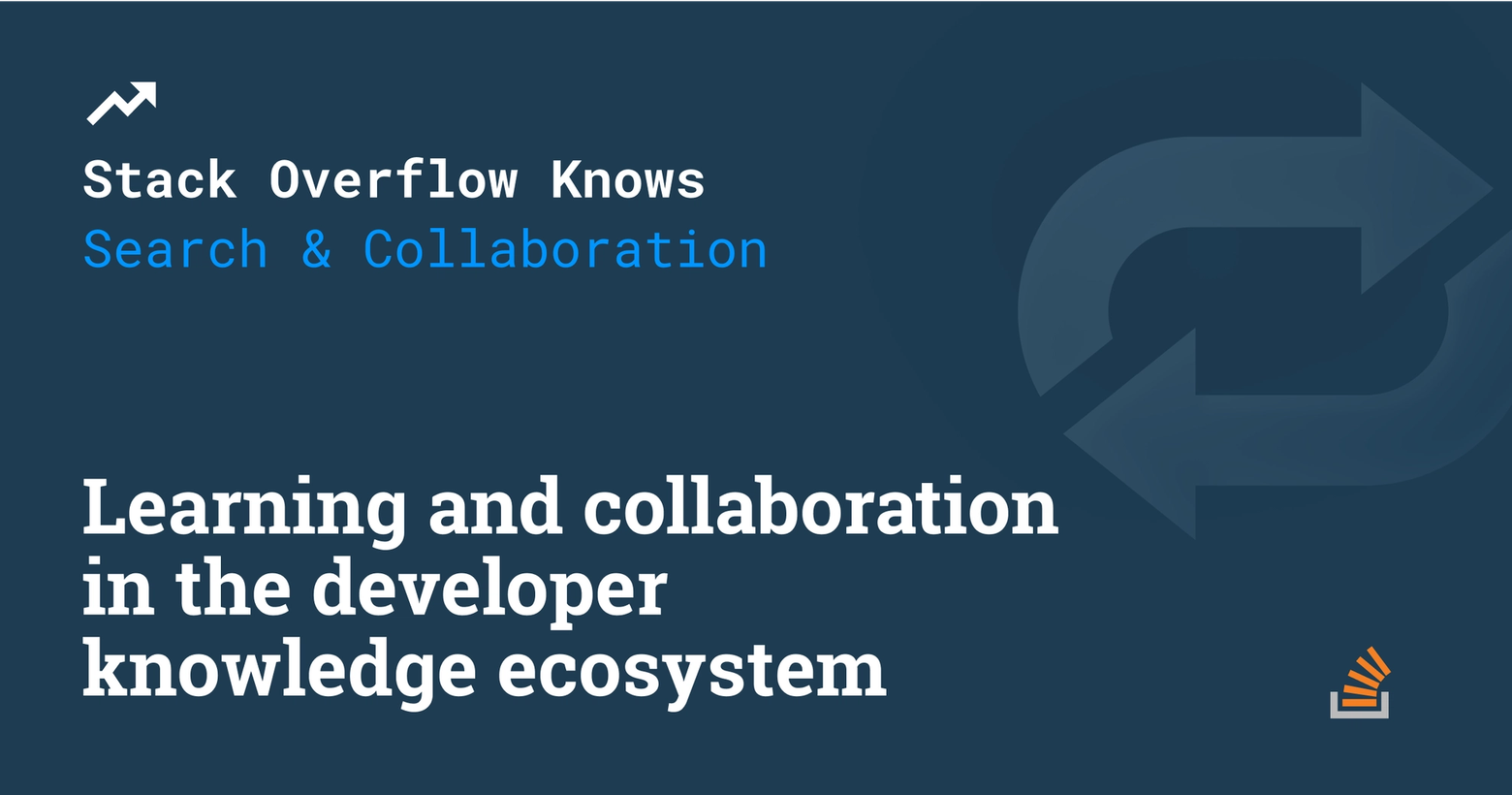When was the last time you recall learning something new? It might have been after passing a test in class or publishing a paper for an academic program. It might have been while you were troubleshooting code or researching a new tool to solve a problem at work. Maybe the last thing you learned was so simple or subtle that it never registered as a new learning until you were able to apply it later. Developers and technologists have been learning to code using online media such as blogs and videos increasingly in the last four years according to the Stack Overflow Developer Survey–60% in 2021 increased to 82% in 2024. The latest resource that developers could utilize for learning is generative AI which is emerging as a key tool that offers real-time problem-solving assistance, personalized coding tips, and innovative ways to enhance skill development seamlessly integrated within daily workflows.
There has been a lot of excitement in the world of software development about AI’s potential to increase the speed of learning and access to more knowledge. Speculation abounds as to whether learning will be helped or hindered by AI advancement. Our recent survey of over 700 developers and technologists reveals the process of knowing things is just that—a process. New insights about how the Stack Overflow community learns demonstrate that software professionals prefer to gain and share knowledge through hands-on interactions. Their preferences for sourcing and contributing to groups or individuals (or AI) provides color on the evolving landscape of knowledge work.
What we know now
We asked developers what helps them feel confident about knowing what they know, and a majority of working professional developers agree doing work is much more meaningful to the process (59%) than reading about it (45%), teaching it to someone (39%), or even the opportunity to interface with the primary source (38%).
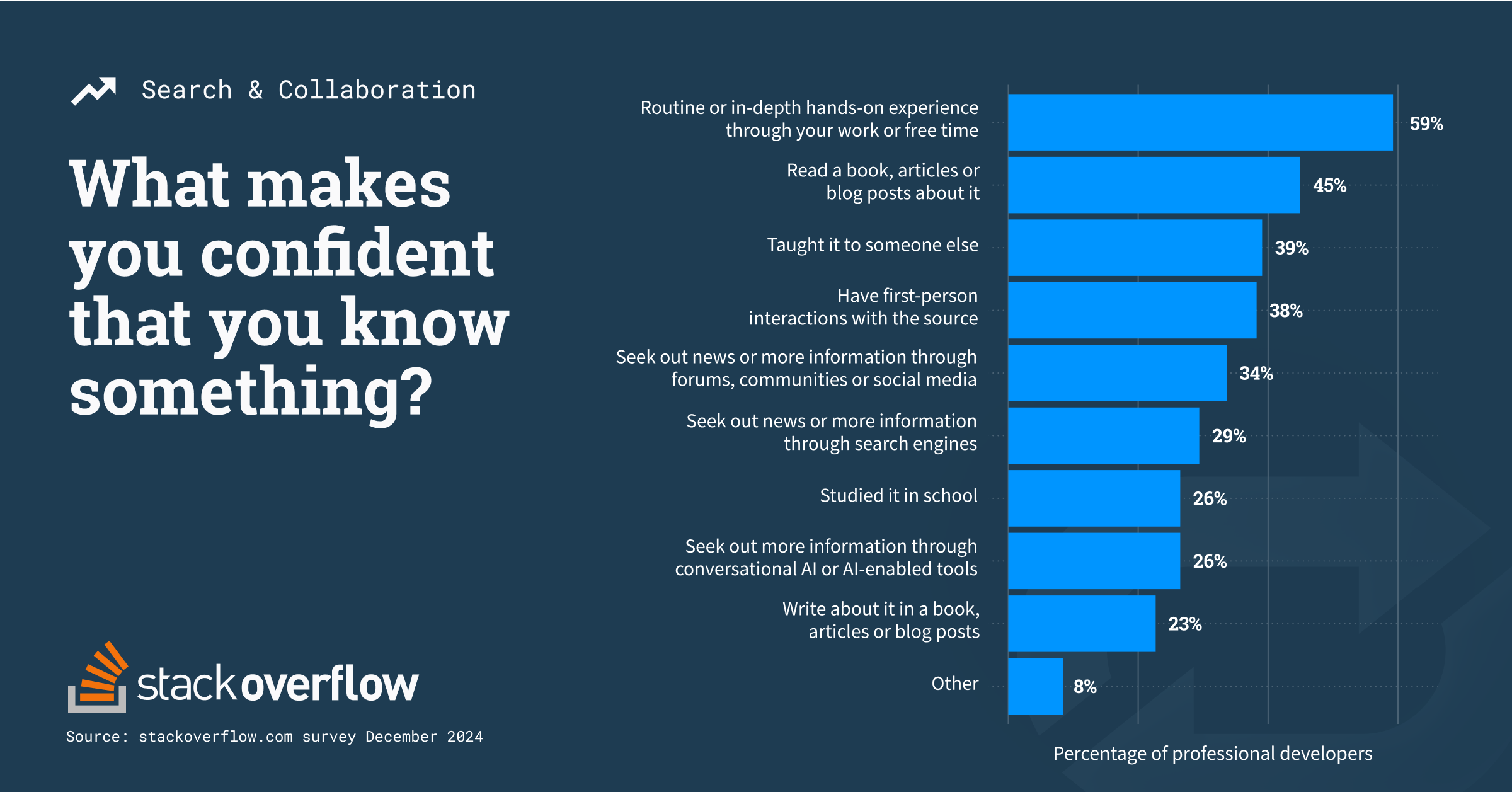
When it comes to feeling confident about your knowledge base, developers across experience levels are remarkably aligned. The majority of both early-career developers (19% of those with five or less years of experience) and seasoned professionals (18% of those with 25 years or more experience) rank hands-on, in-depth routines as their path to knowledge with confidence. Even people managers, who might be further removed from activities such as day-to-day coding, value practical experience almost equal to their individual contributor counterparts (17% and 19% respectively).
This preference isn’t linear, as other learning sources wax and wane in popularity for those with more and less work experience: reading peaks for less experienced (ten or less years) professionals, and search engine use or sourcing from forums and online communities becomes popular among late-career professionals (10 - 15 years experience) but falls out of favor among the most senior professionals (ranked fourth out of the top six learning sources for those with 25+ years of experience). Given that individual contributors are big proponents of learning through teaching (preferred by 14%) and people managers prefer using traditional search engines to learn new things (also 14%), we can surmise that the role dictates how a professional learns and not the work experience.
The motivations behind learning certainly are connected to extrinsic goals (e.g. getting a certification that will lead to a pay increase) but learning is also related to a desire to be autonomous (e.g. owning a GitHub repo for a new tool instead of submitting an issue to an existing tool) and developers in an individual contributor role have more runway to increase their autonomous value than developers who are responsible for a team or department of others which in turn changes their motivations to perhaps be more synergistic (e.g. delegating specific learning activities to team members rather than take on a new responsibility). Role and personal goals can affect how a professional developer chooses to engage in learning in different ways throughout their career.
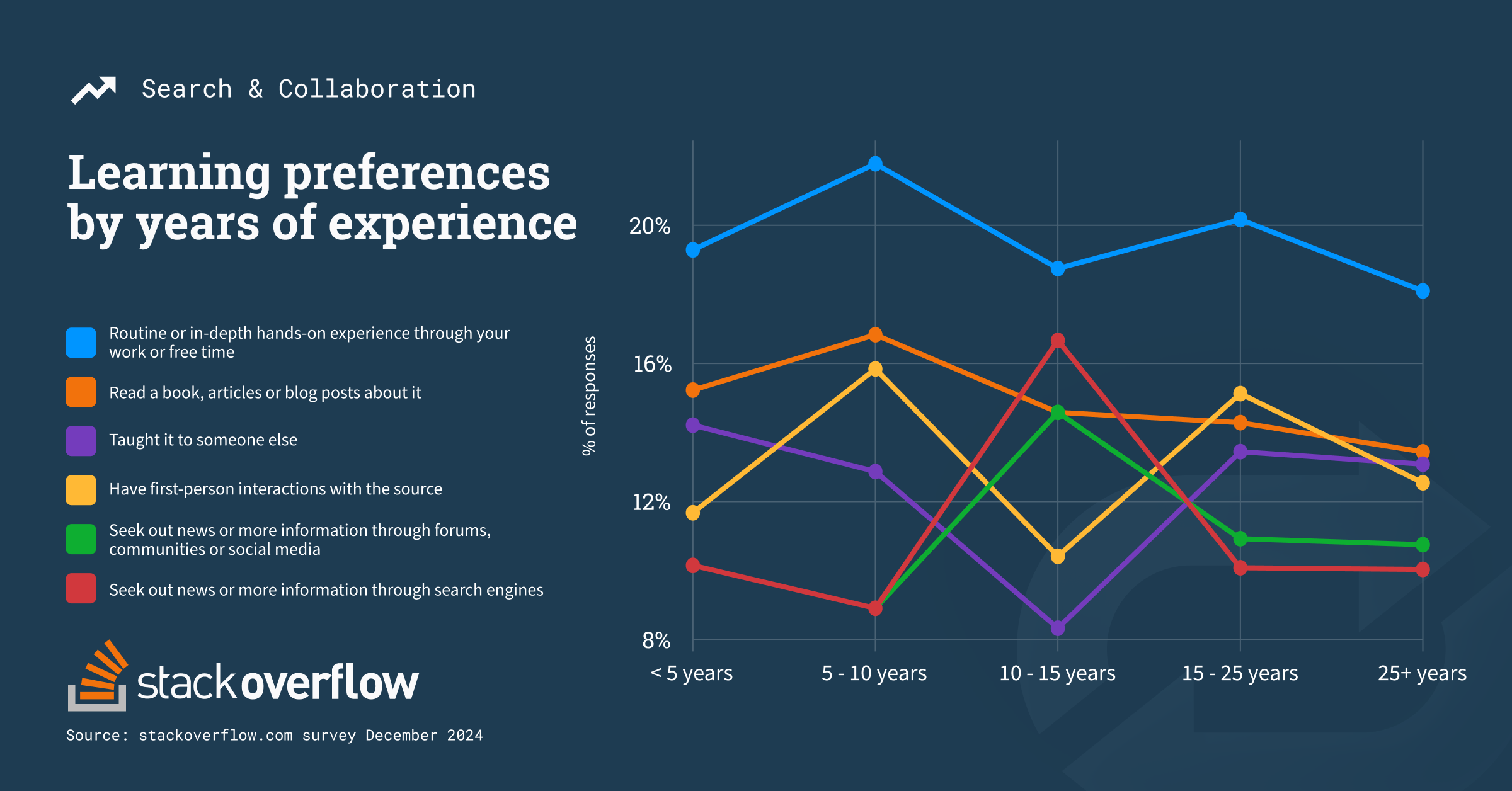
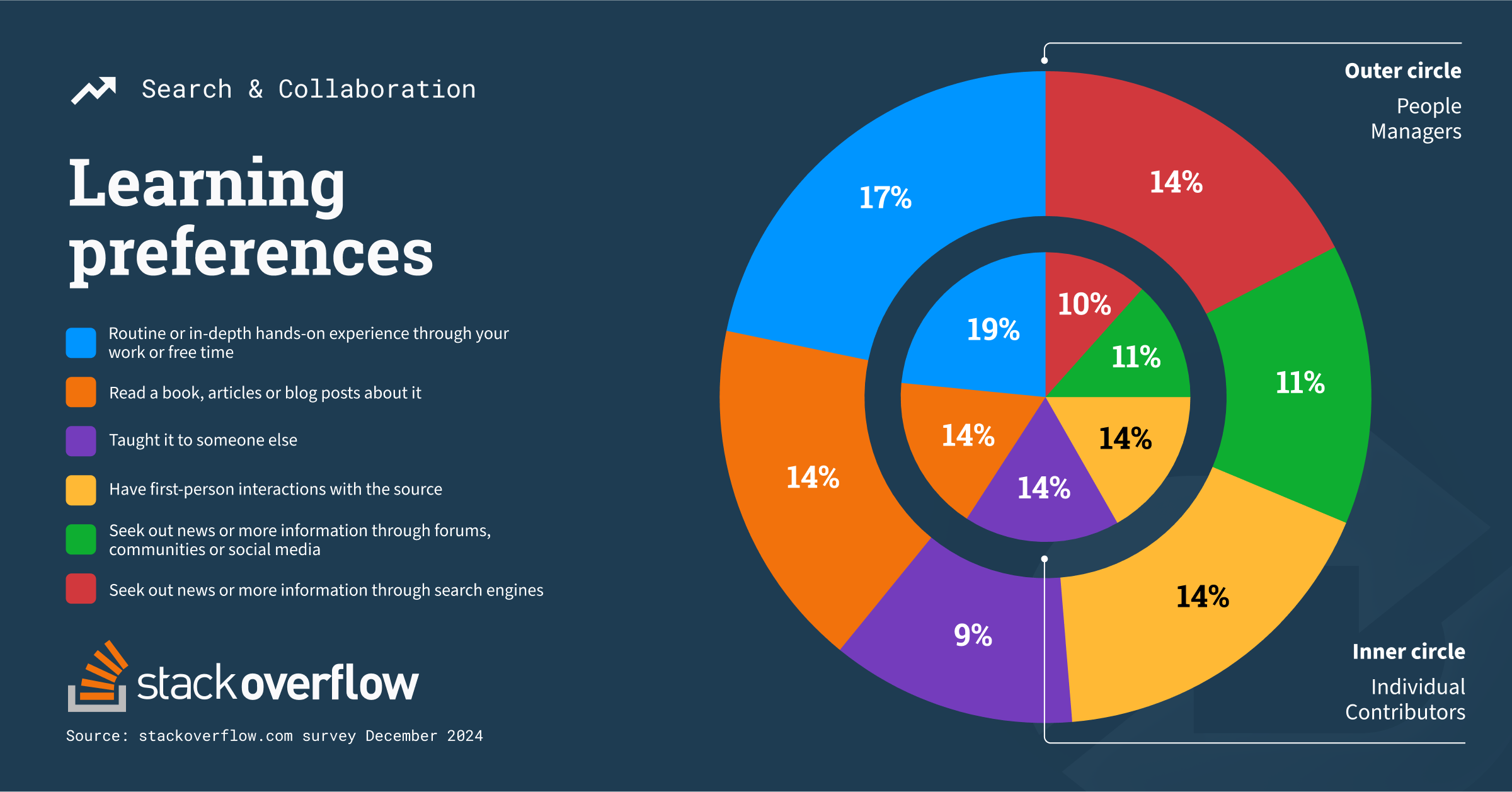
Knowledge brings us together
The path to knowledge isn't solitary. Our survey reveals a strong preference for collective learning that transcends experience levels. The younger the respondent, the more likely they are to prefer collective sources (a range of 27-46%), and while this preference weakens with older generations it doesn’t strengthen their preference for learning via individual sources but rather for having no preference at all (a range of 18-36%).
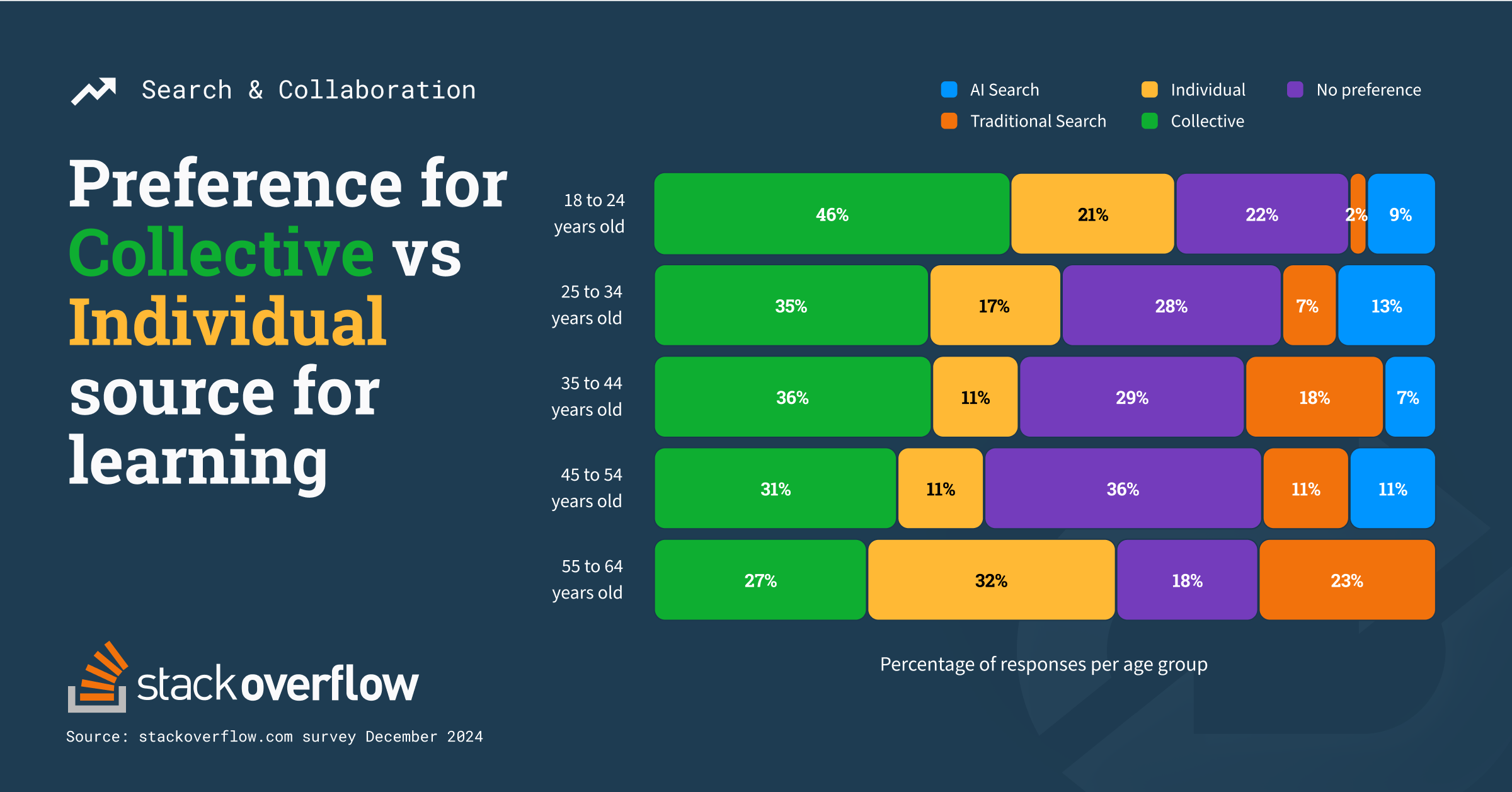
Respondents cite the rubber duck method, a process where a programmer verbalizes their code and logic, as part of the reason they prefer sourcing information from a collective source in this survey. This sentiment is validated in the 14% of individual contributors who prefer learning through teaching, as well as the detail provided in an accepted answer or an answer with many comments on Stack Overflow posts. Respondents that were critical of collective sources of information mention lack of trust and citation, and sometimes lack of consensus. Similar concerns with trust in AI tools among developers are validated in the latest developer survey responses.
While developers strongly prefer collective sources of knowledge, their working preferences tell a more nuanced story. Those with five or more years of experience are almost evenly split between preferring collaboration and solo work (24% and 26% for 5-25 years of experience compared to 31% and 32% for 25+ years of experience) while those with less than five years experience prefer collaborative work (36%) and those with 5-25 years experience prefer neither (53%). Professional developers lean into using AI as a partner at work about equally in all levels of work experience, ranging 10-12% amongst the groups. Could this suggest that AI tools are finding a "sweet spot" where AI complements the existing workflow of developers across various levels of experience? Respondents that do not prefer collaboration express that their introverted personalities are more conducive to working alone and that collaboration adds more time to their process.
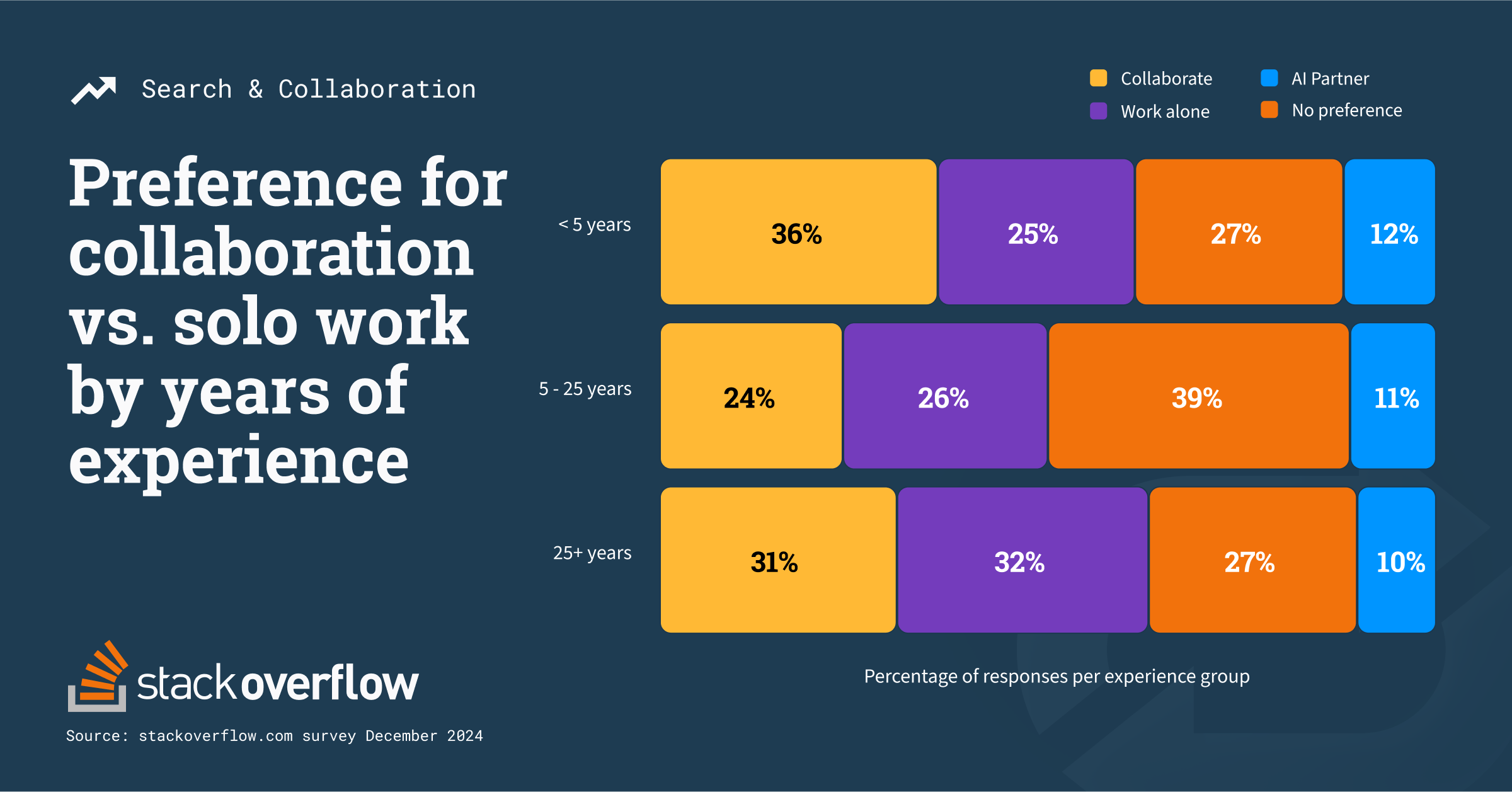
Learning something new
When comparing preferences for learning sources and work style, some expected and unexpected results emerge. Those who prefer collaboration show a stronger tendency toward collective learning sources (52% overlap) and are less likely to prefer individual or AI-based learning methods (9% and 8% respectively). Respondents who prefer to work alone show higher percentages for individual learning preferences (28% have no preference and 22% prefer individual sources of information to learn from), yet still rate collective sources highest at 34%. Even those that prefer working with AI rather than alone or collaboratively rate collective learning as a preference at 30% behind 37% with AI search as their learning preference.
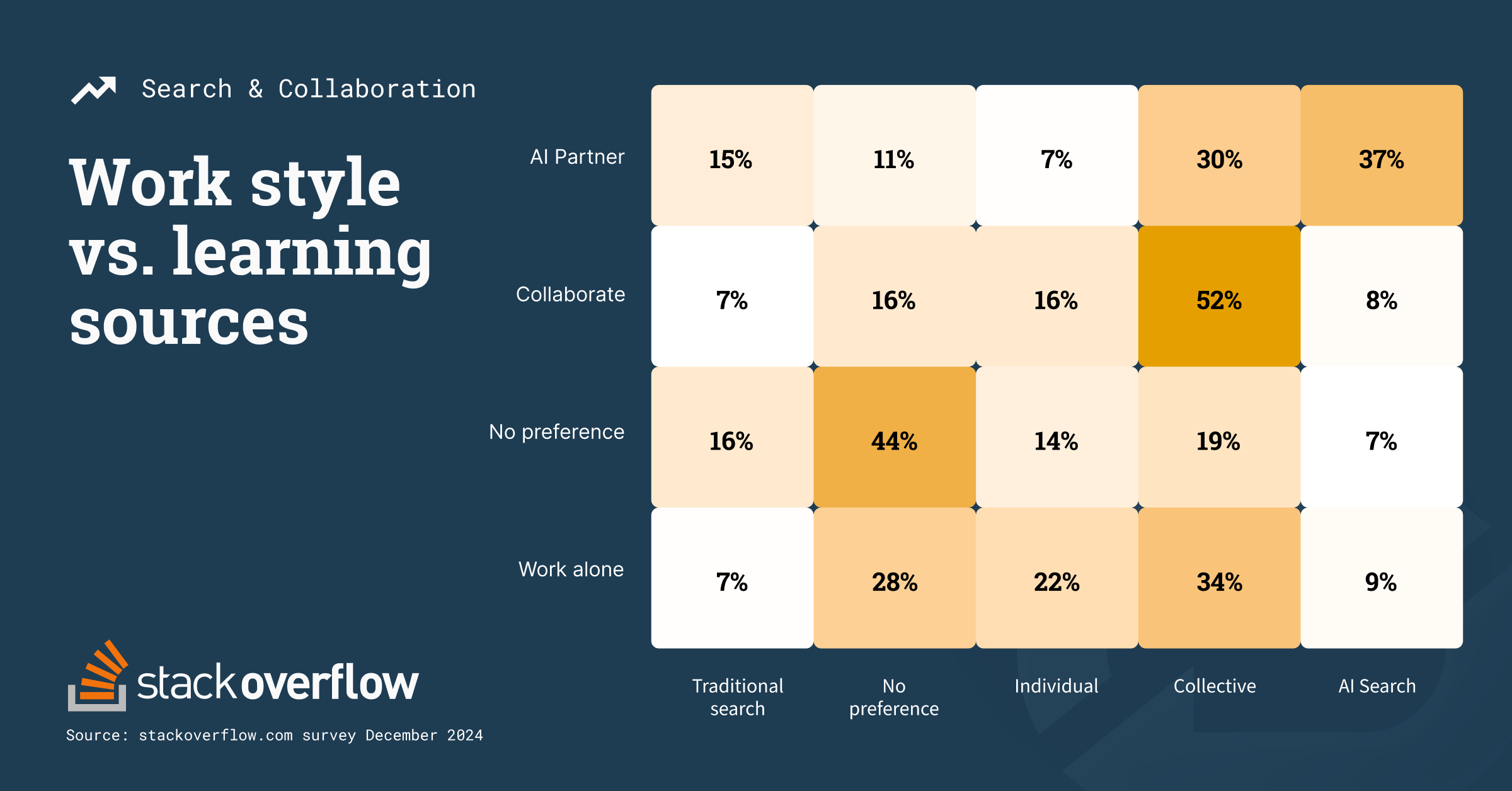
We know Stack Overflow users are using AI at work (almost two thirds of professional devs are using AI), but AI tools do not fit in their learning process according to this survey. When we asked professional developers why they feel confident about knowing something, AI tools were a lesser consideration along with traditional school (both selected by 26%). Some developers praise AI's chat interface and broad knowledge base, yet others remain skeptical, citing workflow integration challenges and an overall lack of trust. Sound familiar? These are the same concerns we've heard about collective knowledge sources—but communities have earned their trust over time. The strong preference for collective knowledge sources suggests that community platforms and collaborative learning environments are still critical, even as AI tools become more sophisticated. For those building developer tools and platforms, the message is clear: focus on enhancing, not replacing, community interaction. The most successful AI implementations might be those that facilitate better community learning rather than trying to substitute for it.
